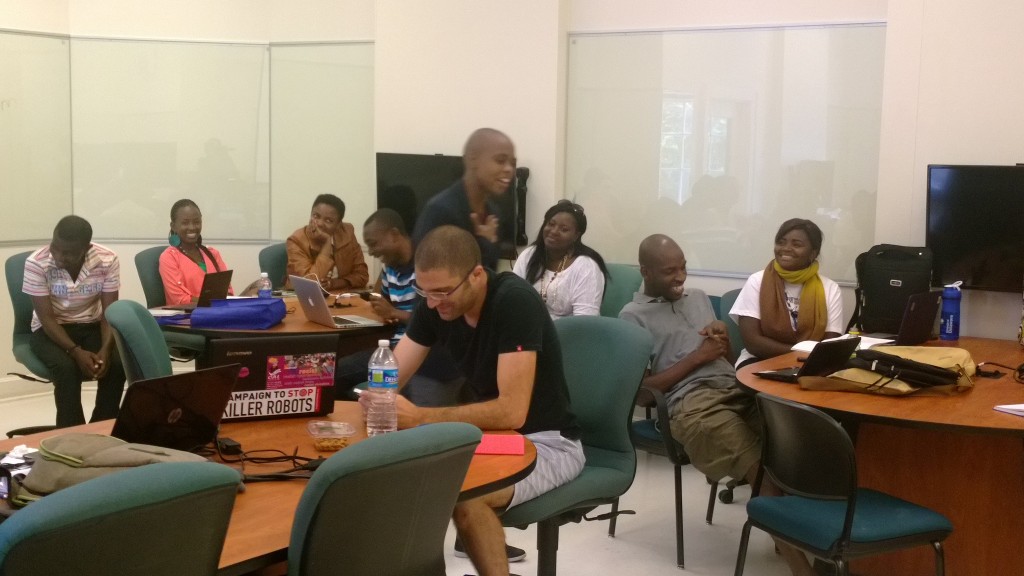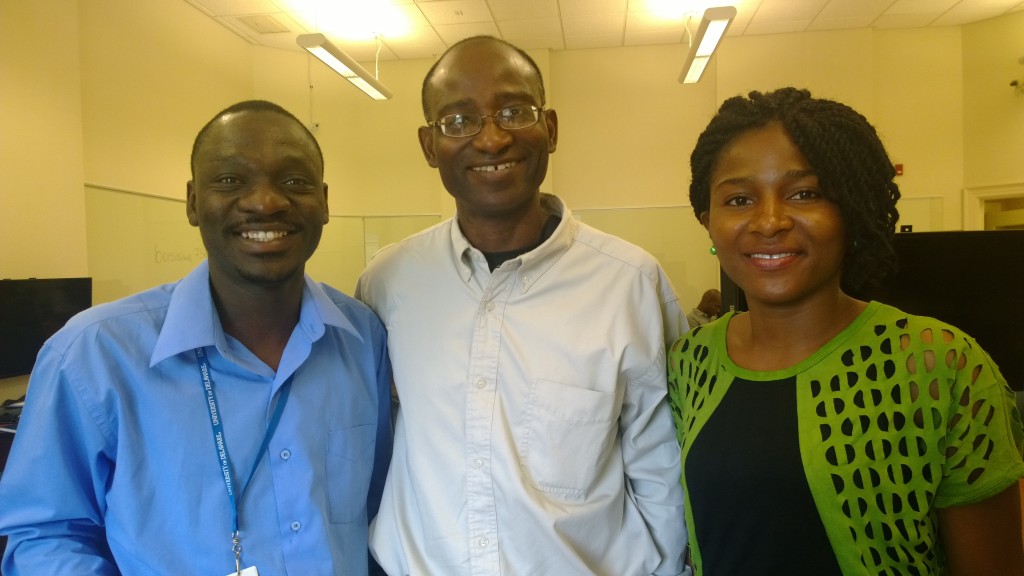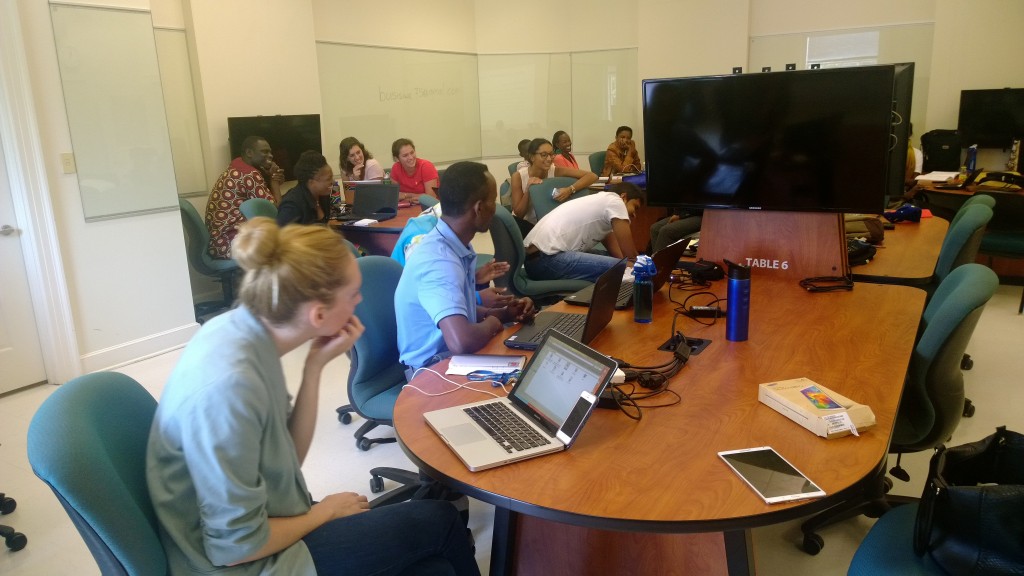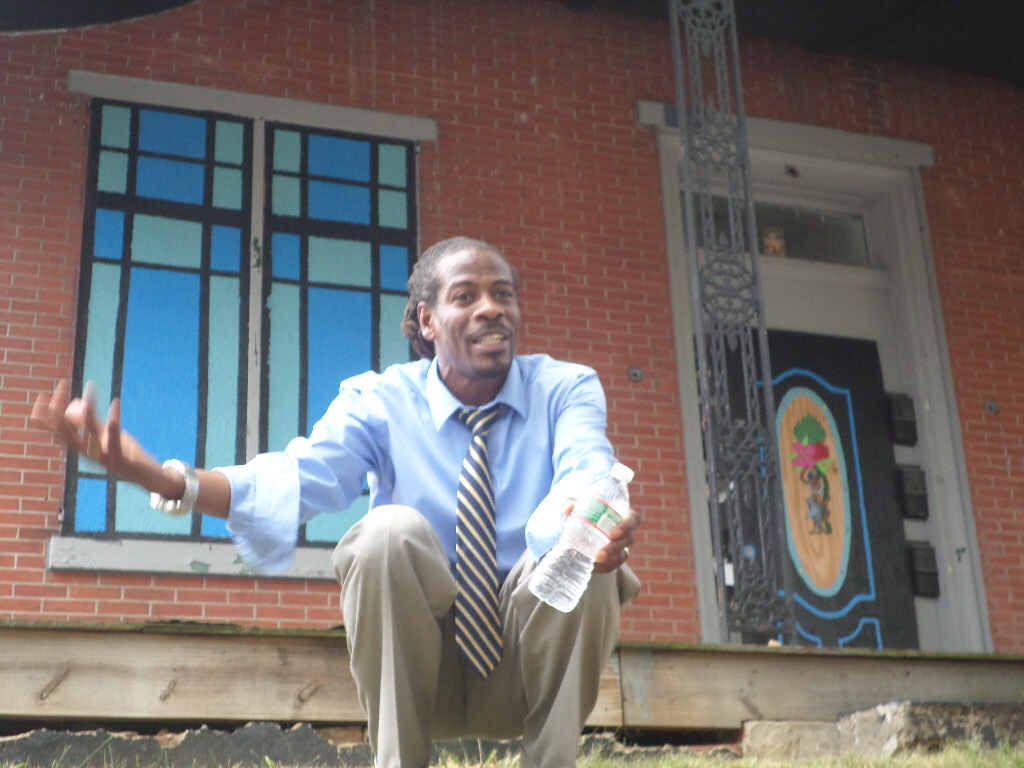As a social entrepreneur, I woke up elated Tuesday morning and looked forward to begin the session with Professor Titus Awokuse. The focus was on the macroeconomic conditions in Sub-Saharan Africa, economic growth, development, and the role of social entrepreneurship as a micro solution to sustainable growth. Some Fellows argued that the value of economic growth in a nation should not be measured by the GDP at the macro level without taking into account the activities at the micro level.
Professor Awokuse pointed out that economic growth does not guarantee economic development in African countries with inadequate income distribution in various sectors. However, structural transformation of the economy from an agrarian to a manufacturing industrialized economy, stronger global linkages via International trade & FDI, good governance, and provision of physical and institutional/organizational infrastructure are drivers for sustainable growth and development.
Awokuse also stated that “social enterprise combines the creation of economic value with a social mission.” This was an interesting aspect. We discovered that social entrepreneurships are grassroots level choices and actions by individuals seeking to make a difference in the lives of others and help to lead change in the society. For example, training companies, various projects for the homeless, child and out-of-school schemes, and so on.
Characteristics of social entrepreneurs include creativity, entrepreneurial, ethical and agenda-setting, and the professor further emphasized that social entrepreneurs develop innovative and effective solutions to social problems, develop and generate outside support and resources for business ideas, pioneer ideas and proposals that makes major difference when implemented, and have traits of transparency, social integrity and financial accountability.
Social enterprises are business-orientated with social goals and social ownership. The primary aim of social enterprise is not making money, but the achievement of its economic and social objectives. Many fellows had lots of questions on the classification of social entrepreneurs.
We also had a role play on the elevator pitch exercise; the exercise was a one-minute introduction of ourselves and the work we do to a potential donor in an elevator. I think it was useful in terms of creating short speeches that contained relevant information about our social work.
In the afternoon, some fellows paid a visit to Nnamdi O. Chukwuocha, a council member of the City of Wilmington that gave a talk on the challenges faced by the people of Wilmington and how he uses arts to empower young people and uplift the community. The issue of identity about being African American was also raised by people that we visited because they believe their roots are in Africa.









